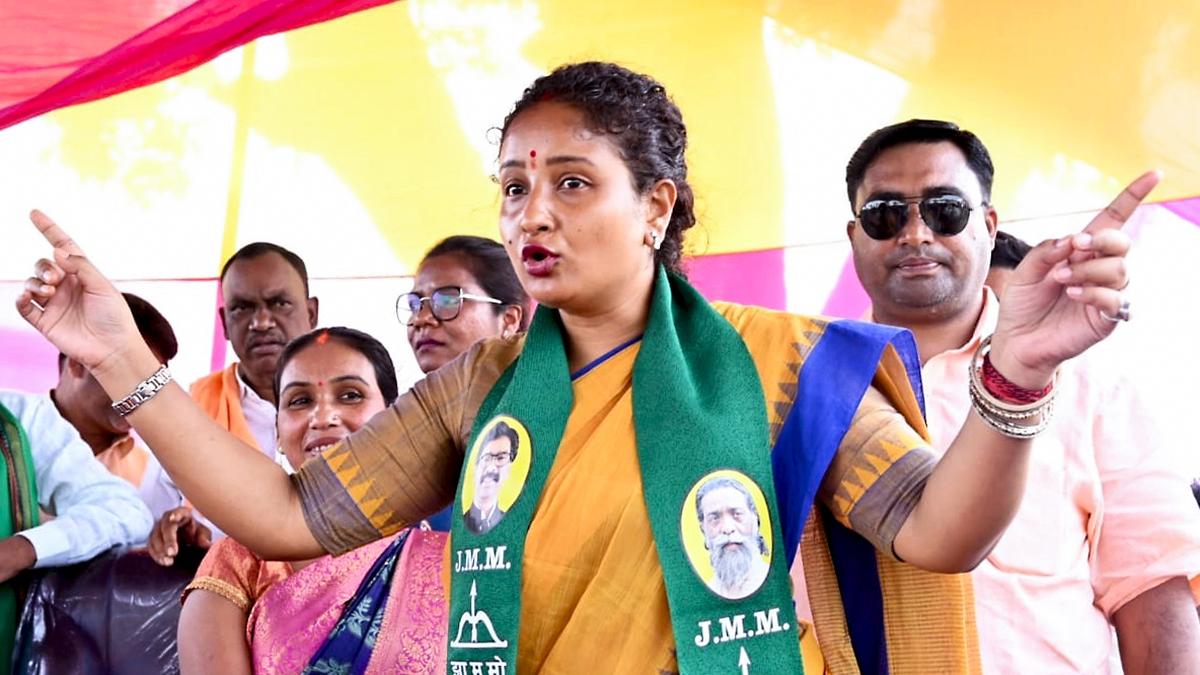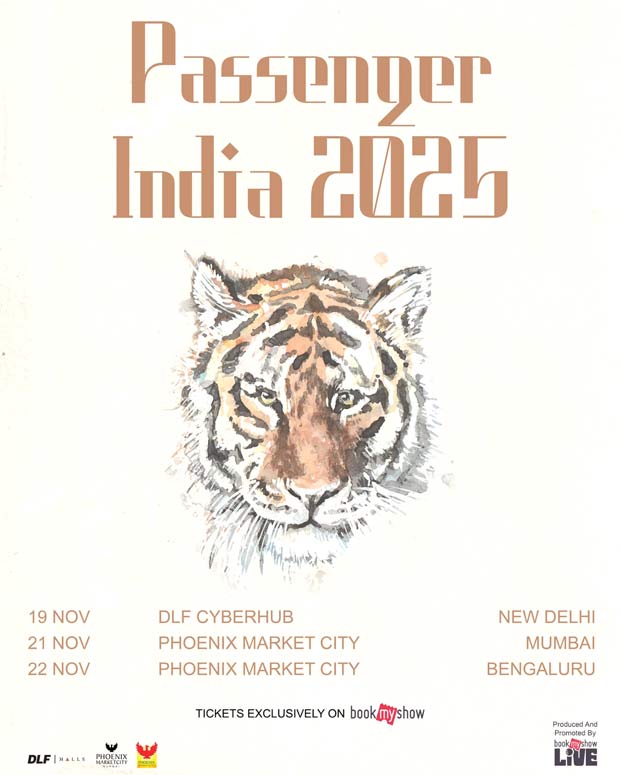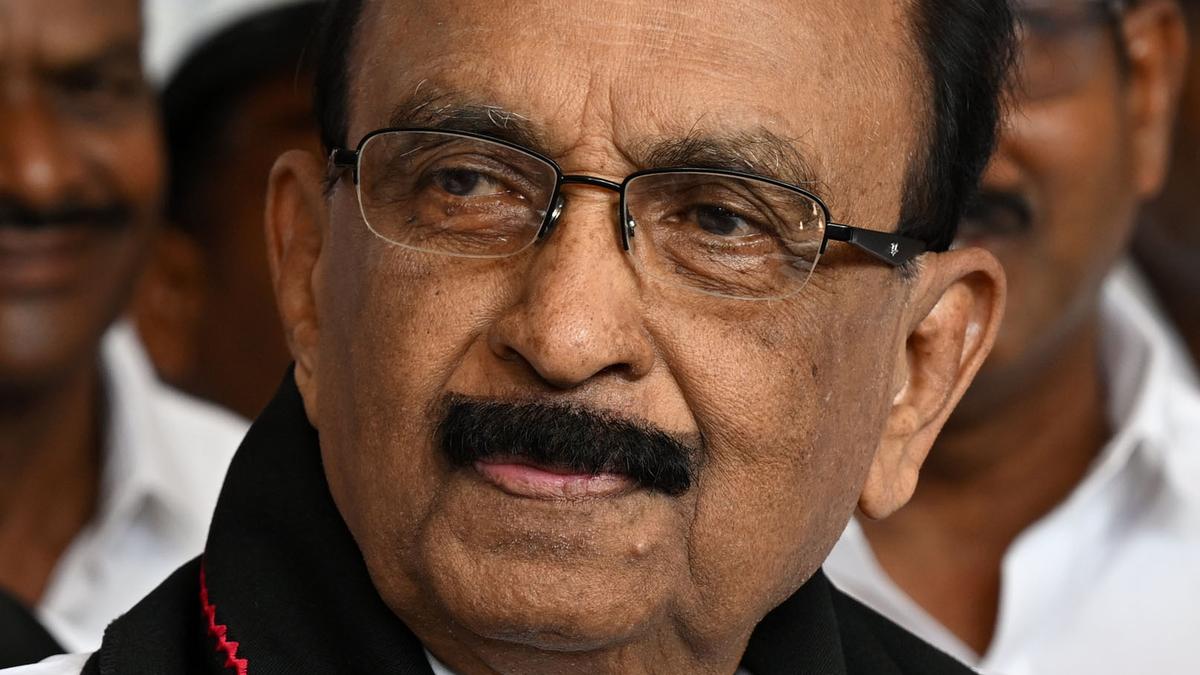Jharkhand Mukti Morcha (JMM) candidate from Gandey Assembly constituency, Kalpana Soren interacts with the crowd during the campaign ahead of Jharkhand Assembly elections, at Gandey.
| Photo Credit: ANI
Ground is all set for the battle of Assembly election in Jharkhand when people will cast their vote for the first phase on November 13. Jharkhand Mukti Morcha (JMM) led INDIA bloc and Bharatiya Janata Party (BJP) led National Democratic Alliance (NDA) are trying their level best to attract the voters.
Also Read:Family show in Jharkhand election
All the political parties have announced their candidates, filing of nomination has ended and campaigning is underway in the tribal dominated state where each political party is raising the issues which can benefit it the most.
As per seat arrangement in NDA, BJP is contesting in 68 seats, All Jharkhand Students Union (AJSU) in 10 seats, Bihar Chief Minister Nitish Kumar’s Janata Dal (United) in 2 seats and Chirag Paswan led Lok Janshakti Party (Ram Vilas) given 1 seat. In the INDIA bloc, JMM is contesting in 41 seats, Congress in 30, Rashtriya Janata Dal (RJD) in 6 and Communist Party of India (Marxist-Leninist) in 4 seats.
Jharkhand election will be completed in two phases with first phase of polling on November 13 in 43 assembly constituencies and second phase of polling on November 20 in 38 seats whereas counting of votes will take place on November 23.

A total of 685 candidates are contesting in the first phase whereas the fate of 634 candidates will be decided in the second phase. In the first phase, Jamshedpur West assembly constituency has maximum 28 candidates whereas Manika assembly constituency has minimum 09 candidates.
Similarly, in the second phase maximum nomination was filed in Dhanwar and Bokaro seat with 27 candidates each whereas Deoghar seat has only 8 candidates.
The prominent seat in the first phase includes Saraikela where former Chief Minister Champai Soren is contesting election for the first time as a BJP candidate, so as Jamshedpur East where Odisha governor and former CM Raghubar Das daughter-in-law Purnima Das Sahu is in fray. Jamshedpur West is another prominent seat from where Saryu Roy is contesting as Janata Dal -(United) candidate.

Ranchi seat which is state capital of Jharkhand is also voting in the first phase where the contest is between Rajya Sabha member Mahua Maji of JMM and six times MLA C P Singh of BJP.
The maximum prominent candidates are in second phase in which the fate of Chief Minister Hemant Soren (Barhait), his wife Kalapana Soren (Gandey), his brother Basant Soren (Dumka), BJP state president Babulal Marandi (Dhanwar), Amar Kumar Bauri (Chandankiyari), Shibu Soren daughter-in-law Sita Soren (Jamtara) and AJSU president Sudhesh Mahato (Silli) will be decided.
Jharkhand has a total of 81 Assembly constituencies across 24 districts. Of these, 44 are general, 28 are reserved for scheduled tribes (ST), and nine for scheduled castes (SC). In the last assembly polls in 2019, the JMM-Congress-RJD alliance won 47 seats whereas the BJP slipped 25 seats from 37 it held in 2014.
The issues which are dominating this election include alleged Bangladeshi infiltration, corruption charges against the Hemant Soren government and face-off between JMM and BJP over the monthly cash transfer scheme.
Union Minister Shivraj Singh Chouhan who is the in-charge of the Jharkhand election and Assam Chief Minister Himanta Biswa Sarma, the co-incharge of the Jharkhand election are making frequent visits to poll bound state visiting assembly constituencies to address public meetings.
Jharkhand has always been a stronghold of the BJP as the party ruled the State for 13 years since its formation in 2000. However, it has been struggling to recapture the tribal votes in recent years. In the 2019 Assembly election, of the 28 reserved seats, it only won 2, down from 11 in 2014.
Prime Minister Narendra Modi will start the election campaign in Jharkhand by addressing two rallies in Chaibasa and Garhwa on November 4. Before him, even Union Home Minister Amit Shah will address three rallies in Dhalbhumgarh, Simaria and Barkatha on November 3. They will make their first visit after the announcement of assembly polls in the state.
Jharkhand has a total of 2.59 crore voters with 1.31 crore male, 1.28 crore female electors. There are over 11.05 lakh first time voters (18-19 years) and1.14 lakh 85+ senior citizens and 3.64 lakh PwD (person with disabilities) voters registered in the state.
A total of 29,562 polling stations will be set up in 20,276 locations in assembly elections. While 24,520 of these will be in rural areas, 5,042 will be urban polling stations with an average of 872 voters per polling station.
For the first time in State Assembly Elections in Jharkhand, Senior Citizens over 85+ years and PwDs with 40% benchmark disability will be provided an option to vote from the comfort of their homes by filling application form 12D.
Published – November 01, 2024 04:45 pm IST






